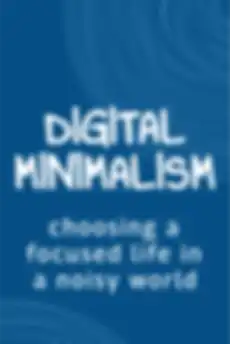Focusing on too many things, we might neglect our health, happiness, or family. So, how should we deal with this information overload?
Start small and practice hyperfocus
What if you focus too hard on a great deal of information? Some might say you will become more productive, but is that true? In fact, it can deplete your mental energy, resulting in inattentiveness. One way of solving this problem is by practicing hyperfocus.
Hyperfocus isn’t a magic pill that will cure our info overload. It’s just a way to get away from our world’s hustle and bustle and do the things we have to do. First, choose what to do, and then create the most comfortable environment, namely, the environment without distractions. Having turned off all notifications, get down to work. It’s pretty useful to limit yourself to a certain amount of time. This way, you can avoid information overload for some time and complete a necessary task.
If you are interested in exploring the hyperfocus mode, check out our summary of Hyperfocus.

Discern facts from assumptions
The problem with information overload is that it often leads to overgeneralization and wrong assumptions about complex issues. Not everything we look up on the Internet is true. Even the data in this article could be fake. Of course, there is no need to become paranoid about all the things you read, but you should question at least some obvious overgeneralizations. Just to name a few, be careful when one refers to “the majority” or presents too vivid examples. It might seem like finding a needle in a haystack, but after some time, you will easily cut out the fluff.
To ensure that information overload won’t fill your head with misconceptions and trivial info, we recommend you to read our summary of Factfulness. Oh, and don’t forget to double-check the things we write. Your trust must be earned, and only then can you reduce the number of personal development websites to just one. Fingers crossed, it will be advanceme.today.

Minimize the technologies you use
Information overload can be reduced by decreasing the time spent on our gadgets. Bill Maher once said, “The App Store wants your soul.” Undoubtedly, platforms such as Facebook and X are effective mediums for tracking news from our friends’ lives, politics, and the world. But doesn’t it sound too much?
Cal Newport’s digital minimalism could be a perfect solution for those suffering from information overload. Digital minimalism isn’t about quick solutions, such as turning off your notifications. Instead, you should reevaluate your core values and adopt a guiding philosophy for your use of technology. Simply put, you need to weigh the pros and cons of each technology you use, decide if it aligns with your values, and then either incorporate it into your life or dismiss it as a distraction.
Our summary of Digital Minimalism provides a more in-depth understanding of how to achieve digital minimalism and avoid information overload by reducing the number of technologies you use.

Give digital detox a try
Digital detox is becoming more and more popular, since people feel overwhelmed by all the data they get from those small and big screens. In today’s world, it’s almost impossible to imagine living a day without scrolling on our phones.
Digital detox shouldn’t be grand. Start by defining which technologies or even websites that you use are optional. Optional means you don’t need them for work or your personal development. Once you’ve decided on them, refrain from using them for a month. You may experience discomfort for a week or two. Then, you will adapt, and a constant urge to check online platforms will gradually subside. 30 days in digital detox, think if you really need to reintroduce this optional technology into your life.
Are you ready to try a phone detox, for example?

Adopt a slow media approach to online content
Have you ever heard about the “slow media” movement? If not, you should check their manifesto, but to cut it short, “slow media” isn’t aimless scrolling but mindful consumption of online content.
As the Slow Media Manifesto says, “Slow Media focus on quality both in production and in reception of media content.” The recommendation here is to find a reliable website that provides access to all the necessary data. Thanks to that, you will click less and be able to focus on the information at hand.

Even tiny changes can reduce information overload
Learning to discern facts from assumptions, living according to digital minimalism, or adopting a slow media approach will definitely take a lot of time, but what can you do here and now?
First, use blocking tools. Of course, it will reduce your devices’ productivity. Even though your phone is amazing at multitasking, you are not. Blocking certain distractions on your devices will reduce information overload and improve productivity. We recommend trying the Freedom app, as it can block distractions on all your devices simultaneously.
Second, view social media as a tool, not merely a source of entertainment. Define specific purposes for different platforms. For instance, use Facebook to connect with family and friends, but don’t watch job tips videos. Use X to network, but ignore tweets from relatives. Use LinkedIn to advance your career, but bypass LinkedIn games.
Third, consider using dumb phones instead of smartphones. The simpler the device is, the less time you spend on distractions. The result? You end up having more time for actual work, your family, and yourself.
Many of these recommendations may seem challenging, but you just need to take the first step. Then, the second, and by the time you take the tenth step, you will greatly reduce your information overload. So, what will happen if you don’t stop following these recommendations? Who knows? Maybe you'll finally avoid information overload.
Photo credits:










